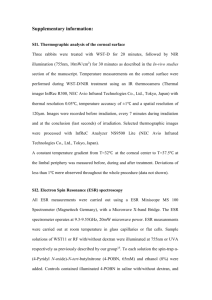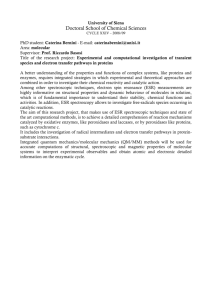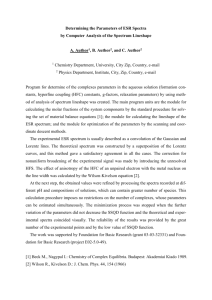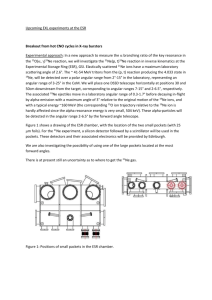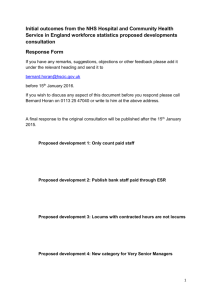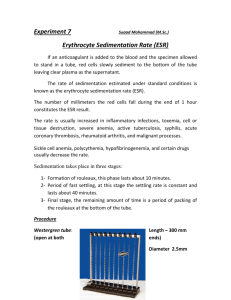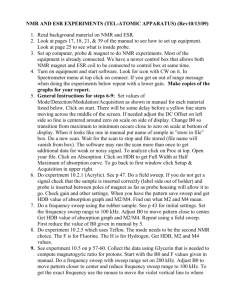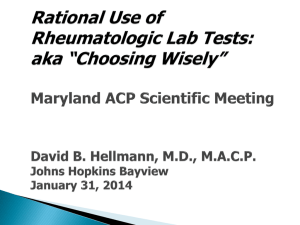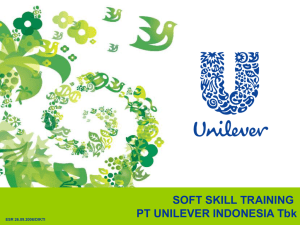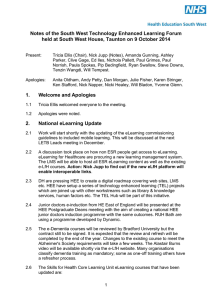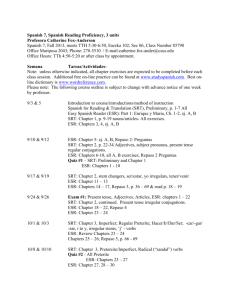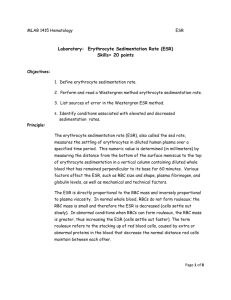Ruben_Verheyden_CDP
advertisement
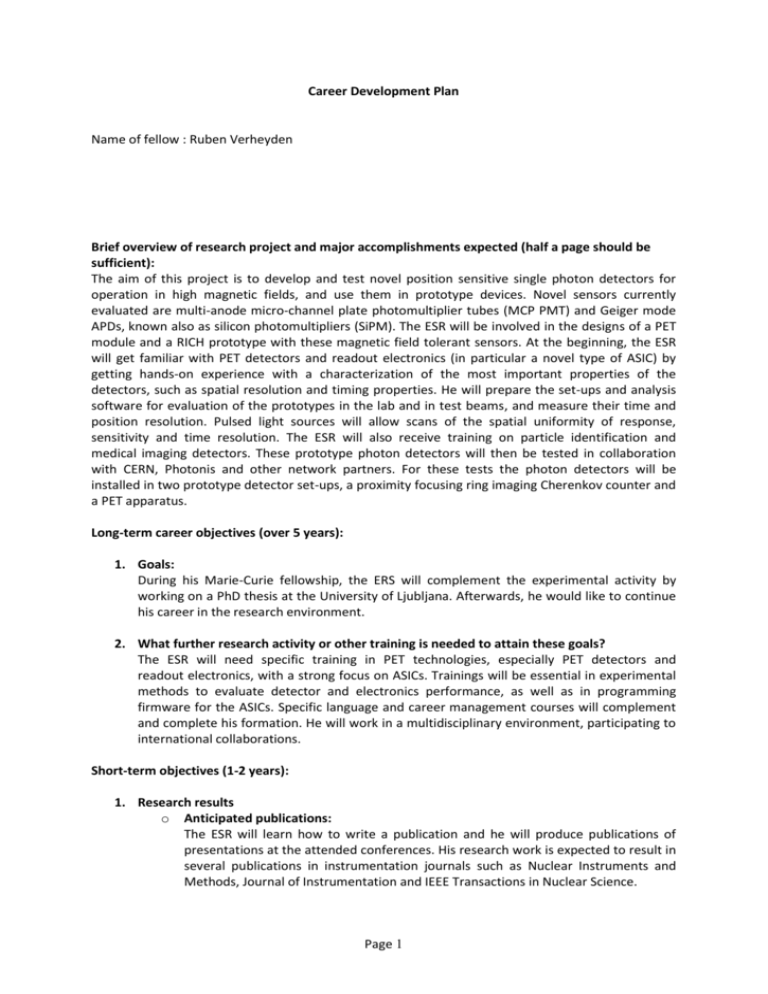
Career Development Plan Name of fellow : Ruben Verheyden Brief overview of research project and major accomplishments expected (half a page should be sufficient): The aim of this project is to develop and test novel position sensitive single photon detectors for operation in high magnetic fields, and use them in prototype devices. Novel sensors currently evaluated are multi-anode micro-channel plate photomultiplier tubes (MCP PMT) and Geiger mode APDs, known also as silicon photomultipliers (SiPM). The ESR will be involved in the designs of a PET module and a RICH prototype with these magnetic field tolerant sensors. At the beginning, the ESR will get familiar with PET detectors and readout electronics (in particular a novel type of ASIC) by getting hands-on experience with a characterization of the most important properties of the detectors, such as spatial resolution and timing properties. He will prepare the set-ups and analysis software for evaluation of the prototypes in the lab and in test beams, and measure their time and position resolution. Pulsed light sources will allow scans of the spatial uniformity of response, sensitivity and time resolution. The ESR will also receive training on particle identification and medical imaging detectors. These prototype photon detectors will then be tested in collaboration with CERN, Photonis and other network partners. For these tests the photon detectors will be installed in two prototype detector set-ups, a proximity focusing ring imaging Cherenkov counter and a PET apparatus. Long-term career objectives (over 5 years): 1. Goals: During his Marie-Curie fellowship, the ERS will complement the experimental activity by working on a PhD thesis at the University of Ljubljana. Afterwards, he would like to continue his career in the research environment. 2. What further research activity or other training is needed to attain these goals? The ESR will need specific training in PET technologies, especially PET detectors and readout electronics, with a strong focus on ASICs. Trainings will be essential in experimental methods to evaluate detector and electronics performance, as well as in programming firmware for the ASICs. Specific language and career management courses will complement and complete his formation. He will work in a multidisciplinary environment, participating to international collaborations. Short-term objectives (1-2 years): 1. Research results o Anticipated publications: The ESR will learn how to write a publication and he will produce publications of presentations at the attended conferences. His research work is expected to result in several publications in instrumentation journals such as Nuclear Instruments and Methods, Journal of Instrumentation and IEEE Transactions in Nuclear Science. Page 1 o Anticipated conference, workshop attendance, courses, and /or seminar presentations: The ESR will attend specific courses with the aim of improving his communication skills. He will also present the results of his research work at at least one of the most relevant conferences in his field of research, the annual IEEE Nuclear Science Symposium, the RICH2010 conference and one of the conferences on medical imaging applications. The final decision on a specific conference will be taken when first scientific results are available. 2. Research Skills and techniques: o Training in specific new areas, or technical expertise etc.: The ESR will broaden his knowledge of vacuum based and semiconductor based photon detection technologies and corresponding read-out techniques. He will gain technical expertise on PET imaging and detector prototypes for future HEP experiments. In the area of computing, he is expected to get a good knowledge of C/C++ OOP in ROOT (CERN) and programming firmware. 3. Research management: o Fellowship or other funding applications planned (indicate name of award if known; include fellowships with entire funding periods, grants written/applied for/received, professional society presentation awards or travel awards, etc.) The ESR will work in a group, in close relation with other researchers. He will organise his activity together with other fellows, PhD students and technicians. 4. Communication skills: The ESR will attend Slovene classes to facilitate interaction with technicians. He will also improve his communication skills participating at meetings and conferences. He will regularly present his research work results at video-conference meetings of the SuperBelle particle identification group. 5. Other professional training (course work, teaching activity): The ESR will attended courses and prepare for exams as given by the doctoral study program of the Faculty of mathematics and physics at the University of Ljubljana. As a part of his studies he will also prepare a seminar on his research work. The ESR will also attend instrumentation summer schools and dedicated special courses, including the ones within the MC-PAD project. He is also expected to supervise diploma and master students during his stay at JSI, transferring to them the knowledge he will acquire during his research activity. 6. Anticipated networking opportunities : The ESR will attend the network training events. He will also take advantage of the network opportunities by spending some time at one of the associated partners, most probably related to beam tests, either in CERN or at DESY. 7. Other activities (community, etc) with professional relevance: The ESR will learn to effectively work in an international research environment, in close collaboration with other researchers and technicians. Date & Signature of fellow: Date & Signature of supervisor Page 2 Career Development Plan Guidance on some of the competencies expected The following points are a non-exhaustive series of aspects that could be covered by the career development plan, and it is relevant to the short-term objectives that will be set by the researcher and the reviewer at the beginning of the fellowship period. The objectives should be set with respect to the skills and experience that each researcher should acquire at a given time of his/her career. A postgraduate researcher at PhD level will have very different needs compared to a post-doctoral researcher at an advanced stage of his/her professional development. These objectives should be revised at the end of the fellowship and should be used as a pro-active monitoring of progress in the researcher’s career. 1. Research results These should give an overview of the main direct results obtained as a consequence of the research carried out during the training period. It may include publications, conference, workshop attendance, courses, and /or seminar presentations, patents etc. This will vary according to the area of research and the type of results most common to each field. The information at this level should be relatively general since the career development plan does not strictly constitute a report on the scientific results achieved. 2. Research Skills and techniques acquired Competence in experimental design, quantitative and qualitative methods, relevant research methodologies, data capture, statistics, analytical skills. Original, independent and critical thinking. Critical analysis and evaluation of one’s findings and those of others Acquisition of new expertise in areas and techniques related to the researcher’s field and adequate understanding their appropriate application Foresight and technology transfer, grasp of ethics and appreciation of IPPR. 3. Research management Ability to successfully identify and secure possible sources of funding for personal and team research as appropriate. Project management skills relating to proposals and tenders work programming, supervision, deadlines and delivery, negotiation with funders, financial planning, and resource management. Skills appropriate to working with others and in teams and in teambuilding. 4. Communication skills Personal presentation skills, poster presentations, skills in report writing and preparing academic papers and books. To be able to defend research outcomes at seminars, conferences, etc. Contribute to promote public understanding of one’s own field 5. Other professional training (course work, teaching activity) Involvement in teaching, supervision or mentoring 6. Anticipated networking opportunities Page 3 Develop/maintain co-operative networks and working relationships as appropriate with supervisor/peers/colleagues within the institution and the wider research community 7. Other activities (community, etc.) with professional relevance Issues related with career management, including transferable skills, management of own career progression, ways to develop employability, awareness of what potential employers are looking for when considering CV applications, etc. Page 4
